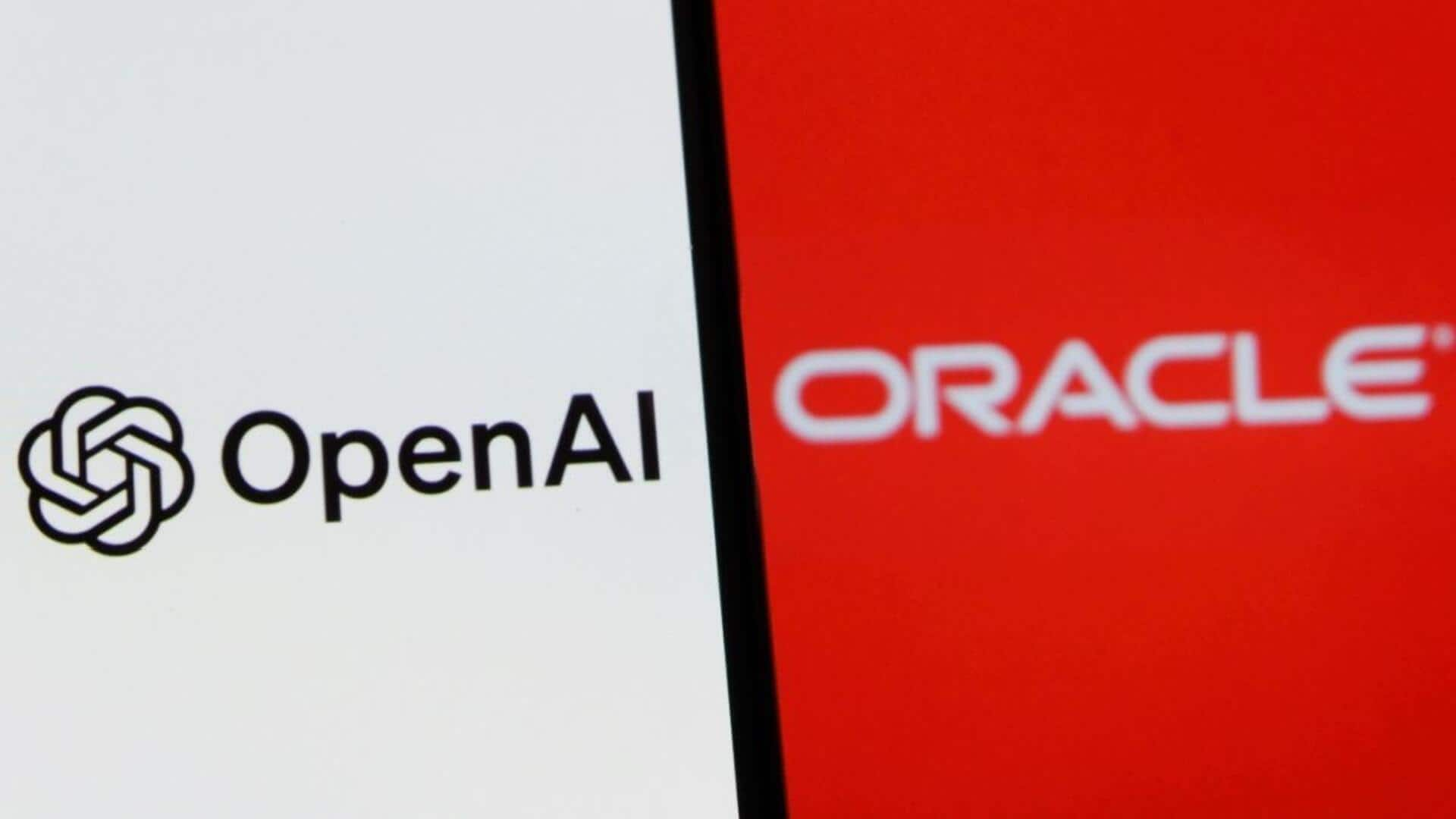
Oracle and OpenAI's $300B mega deal sinks into the red
What's the story
The $300 billion partnership between Oracle and OpenAI, announced on September 10, has taken a major hit. The market has wiped out a staggering $315 billion from Oracle's value since the announcement, effectively erasing the entire worth of the deal and more. Oracle poured borrowed billions into a bet that it could become OpenAI's core infrastructure provider. However, investors got spooked, especially with the company's future now hinging on a single client and one high-risk pursuit: achieving artificial general intelligence.
Strategy fallout
Oracle's financials in a tough spot
Oracle told analysts last month that it aims to reach $166 billion in cloud revenue by 2030, backed by an aggressive $35 billion capex push this year. From 2027 onward, Oracle is counting on OpenAI as its largest revenue driver, placing massive infrastructure and financial bets on it. But the company's balance sheet is under pressure: net debt may nearly double again by 2030 and cash flow is projected to remain negative for five consecutive years.
Market reaction
Oracle's CDS market and investor sentiment
The deal may have already been priced out of Oracle stock, but the company's debt situation remains precarious. Credit-default swap (CDS) costs, used to insure against debt default, have just hit a three-year high. Liquidity in Oracle's CDS market isn't great either, but demand surged after $18 billion in bond sales in September. A CDS premium hovering around 100 basis points indicates that investors are uneasy about the company's financial health.
Market influence
The impact of OpenAI partnerships on tech stocks
The hype around OpenAI has also affected other tech stocks. Broadcom and Amazon both saw their shares dip after announcing their own partnerships with the AI company. Even NVIDIA's stock didn't move much after its investment in OpenAI. This trend raises questions about whether associating with OpenAI is still beneficial for these companies in terms of their market performance.